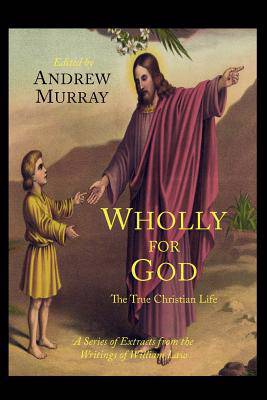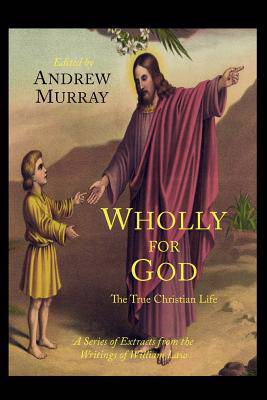
- Afhalen na 1 uur in een winkel met voorraad
- Gratis thuislevering in België vanaf € 30
- Ruim aanbod met 7 miljoen producten
- Afhalen na 1 uur in een winkel met voorraad
- Gratis thuislevering in België vanaf € 30
- Ruim aanbod met 7 miljoen producten
Zoeken
Wholly for God
The True Christian Life: A Series of Extracts from the Writings of William Law
William Law, Andrew Murray
Paperback | Engels
€ 22,45
+ 44 punten
Uitvoering
Omschrijving
2012 Reprint of Original 1894 Edition. Exact facsimile of the original edition, not reproduced with Optical Recognition Software. Many have come to discover the writings of William Law through the publication of selections of his work edited by Andrew Murray. "A Serious Call to a Devout and Holy Life" (1728) deeply influenced the chief actors in the great Evangelical revival. John and Charles Wesley, George Whitefield, Henry Venn, Thomas Scott, and Thomas Adam all express their deep obligation to the author. "The Serious Call" also affected others deeply. Samuel Johnson, ] Gibbon, Lord Lyttelton and Bishop Home all spoke enthusiastically of its merits; and it is still the only work by which its author is popularly known. It has high merits of style, being lucid and pointed to a degree. Though not the most popular, perhaps the most interesting, original and suggestive of all Law's works are those he wrote in his later years, after he had become an enthusiastic admirer of Jacob Boehme, the Teutonic theosopher. From his earliest years, he had been deeply impressed with the piety, beauty and thoughtfulness of the writings of the Christian mystics. However, it was not till after his accidental meeting with the works of Boehme, about 1734, that pronounced mysticism appeared in his works.
Specificaties
Betrokkenen
- Auteur(s):
- Uitgeverij:
Inhoud
- Aantal bladzijden:
- 360
- Taal:
- Engels
Eigenschappen
- Productcode (EAN):
- 9781614272656
- Verschijningsdatum:
- 21/03/2012
- Uitvoering:
- Paperback
- Formaat:
- Trade paperback (VS)
- Afmetingen:
- 152 mm x 229 mm
- Gewicht:
- 526 g

Alleen bij Standaard Boekhandel
+ 44 punten op je klantenkaart van Standaard Boekhandel
Beoordelingen
We publiceren alleen reviews die voldoen aan de voorwaarden voor reviews. Bekijk onze voorwaarden voor reviews.








